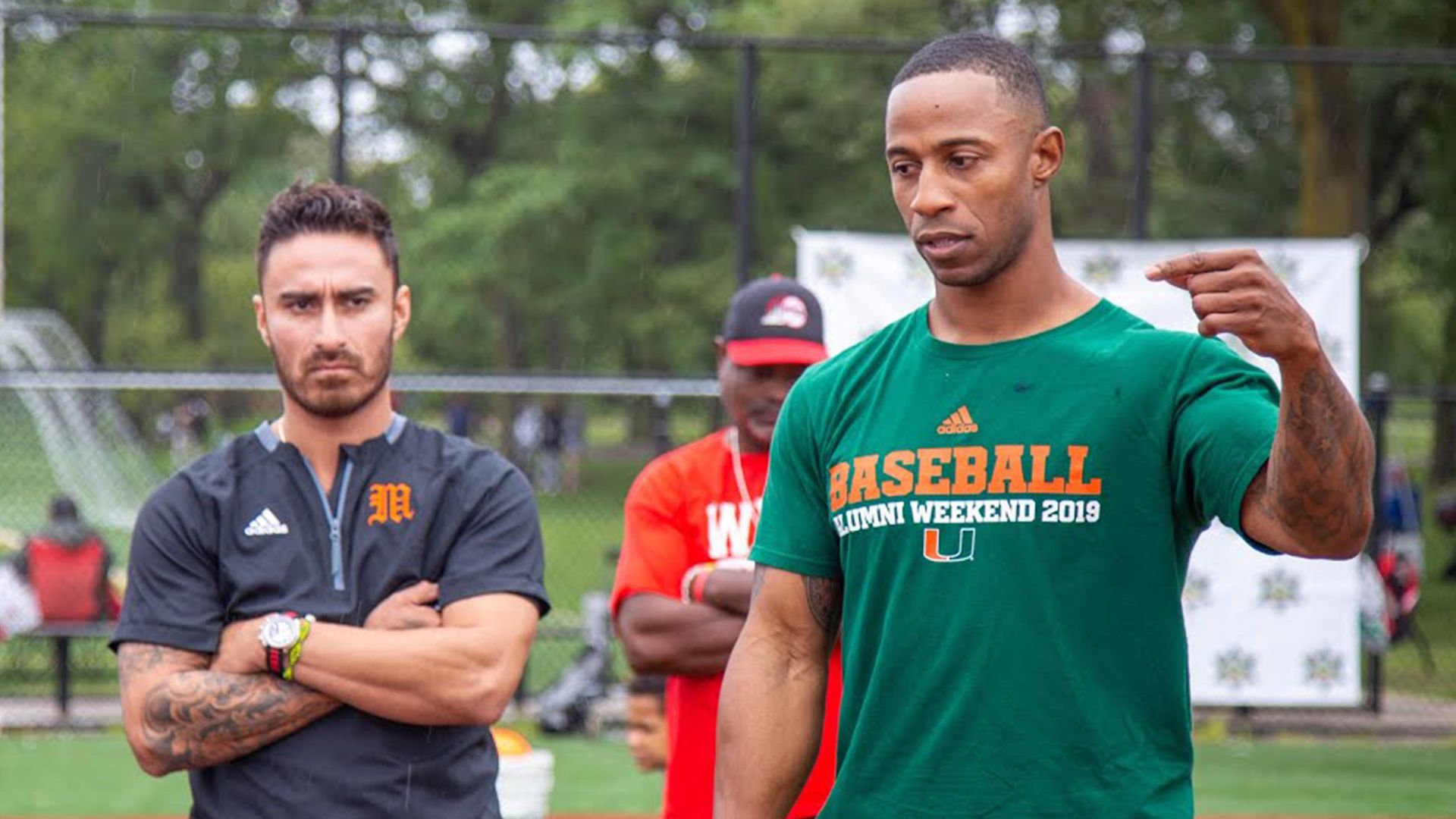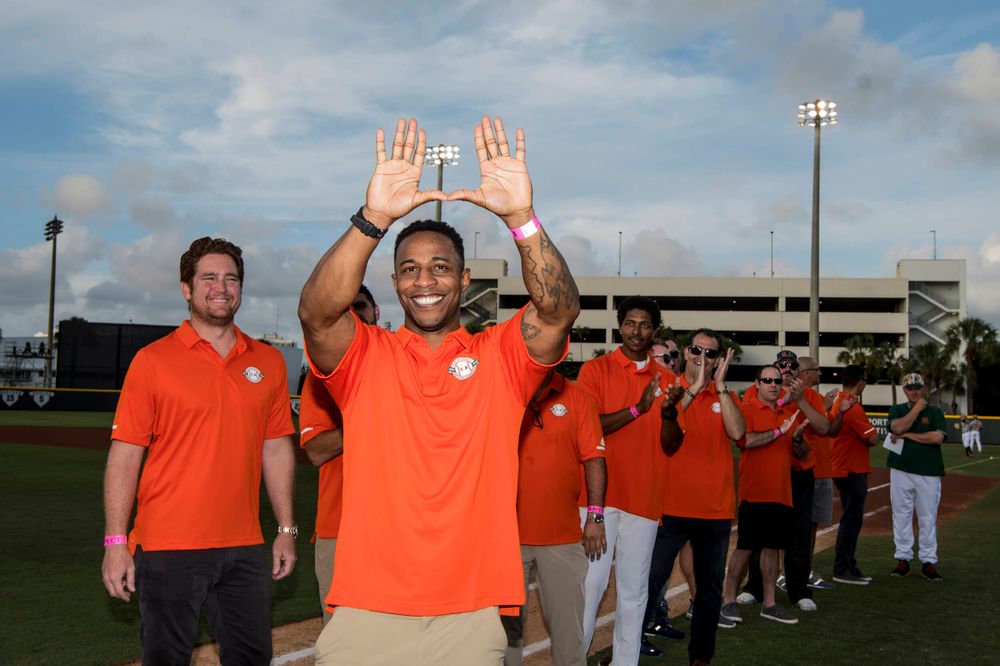Nettles, who has been connecting with inner city youth through baseball for years, recently experienced a small example of the big impact his program is making.
“There were two kids that I saw when I went to our St. Jude’s annual parade that the city has — the state police is involved with it and they honor all of the fallen police officers within the city — and I saw two of the kids that were in the explorers program for the city,” Nettles said. “I thought it was really interesting because they were two kids that were in the baseball program. Their parents brought them out and they weren’t as receptive. They knew they wanted to do something, and they knew they had to be here because their parents were there. But they ended up liking baseball, liking the program and liked hanging out. We took them bowling and went on a couple of field trips to baseball games. So, for me to see them be like, ‘Hey, coach Nettles, you didn’t coach this year.’ And I told him I had a son and I didn’t have time, but he was so proud to tell me, ‘Well, I’m an explorer now.’ And I was like how about this? This dude went from being against the police to wanting to be the police now. I thought that was that was really interesting.”
His next goal is to grow the program even more.
“A lot of these kids that I’ve interacted with, I will pull them into the program that I was running, especially to juvenile kids that were you know getting into like the minor trouble, the guys out here that I feel like had a second chance,” Nettles said. “Before I had my son last year, I wanted to go to my department and make it like a mandatory program for them to come to the youth police baseball league as an alternative when they’re on probation. I wanted it to get to that. That’s not something I’ve given up on, but I had my son last year so that was my focus and then the whole COVID thing came about.”
Nettles’ youth baseball program started small, but always made an impact.
“My first year when I started this thing, some of the dudes I would arrest that had warrants out, a couple of them showed up to my camp with their kids and after I told them about it. I thought that was awesome,” Nettles said. “They had their court dates and were still in the process of going back and forth to court and I would tell them like, ‘Hey, you got kids?’ And they thought I was trying to set them up and I’m like, ‘Look, man, I played baseball. I know basketball is big up here, but this is what I’m doing at Columbus Park.’ I’d let them know my background and they’d be like, ‘What?’ So, I’d tell them, ‘Google me, man. Go ahead and Google me. I’m serious.’ And they brought their son out and then said a couple of words to some of the kids at the end. That was pretty cool and that’s when I kind of knew I was onto something.”
The program grew thanks to support from fellow officers willing to donate their time and fellow Hurricanes like Jose Armario, who helped connect Nettles with a way to help feed the kids that participated in the program.
“I had food sponsors and I had police officers coming out to help me from the department and from the city and the other surrounding areas,” Nettles said. “One of the big boosters from the University of Miami was the McDonald’s guy at the time, Jose Armario, and he got me in contact with some McDonald’s people to get food for the kids. We made it as healthy as possible with water, chicken nuggets, apples and all that stuff, so it was it was pretty cool. He’s with Bojangles now, but the McDonald’s sponsors still helped out with everything. We had a good thing going on.”
In addition to providing a great opportunity for the youth in the south side of Chicago, Nettles has built some goodwill with the community and that has helped him as he works to keep that community safe.
“The more times people would come over to the park and be like, ‘What’s the state police or CPD doing over here?’ And they’d realize we were running a program and we weren’t locking anybody up and that right there helps a lot,” Nettles said. “It helps out when you go into the community and you really have to ask questions about stuff, like when it’s a murder or when somebody’s hijacking or robbing people, committing armed robberies, you’ll get people that are more willing to talk to you because they know you’re invested in the community.”
Nettles takes great pride in giving back to the south side of Chicago and he knows he can make a huge difference in the future of those young people who are growing up there.
“It motivates me big-time, just knowing that I can be a good example for the community and show them that there are good cops and fair cops,” Nettles said. “I stand for integrity.
“I know I can’t do everything, but I know this is going to help,” Nettles said. “I’m in a leadership position with law enforcement and I’m in a leadership position with my baseball background. If I’ve got a couple of people that are listening, it will help my profession because the media up here, they’re not really promoting that type of stuff that’s going on. I’m not saying they’re not reporting facts, but they’re not reporting the positive type of stuff that’s going on with the police in the community.”








